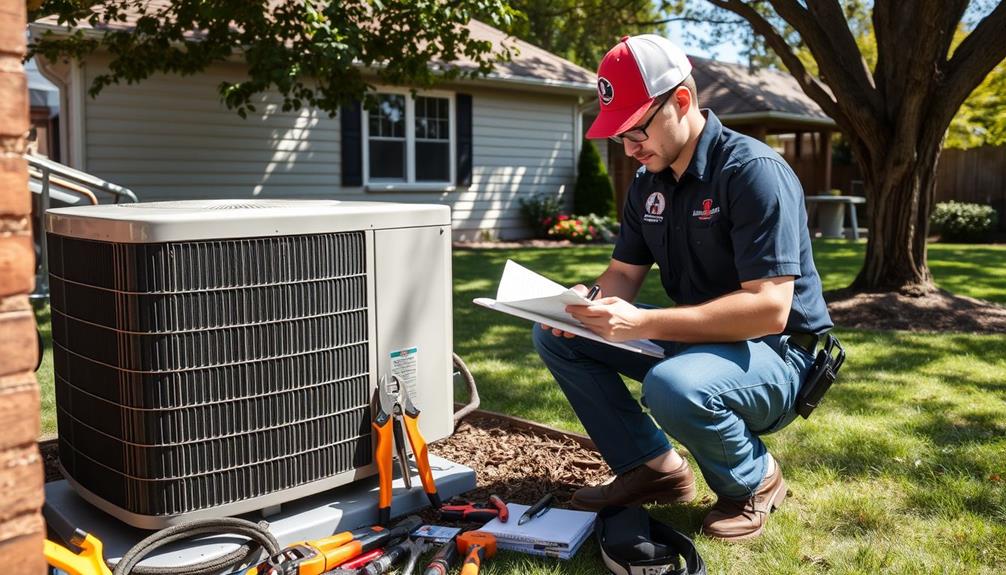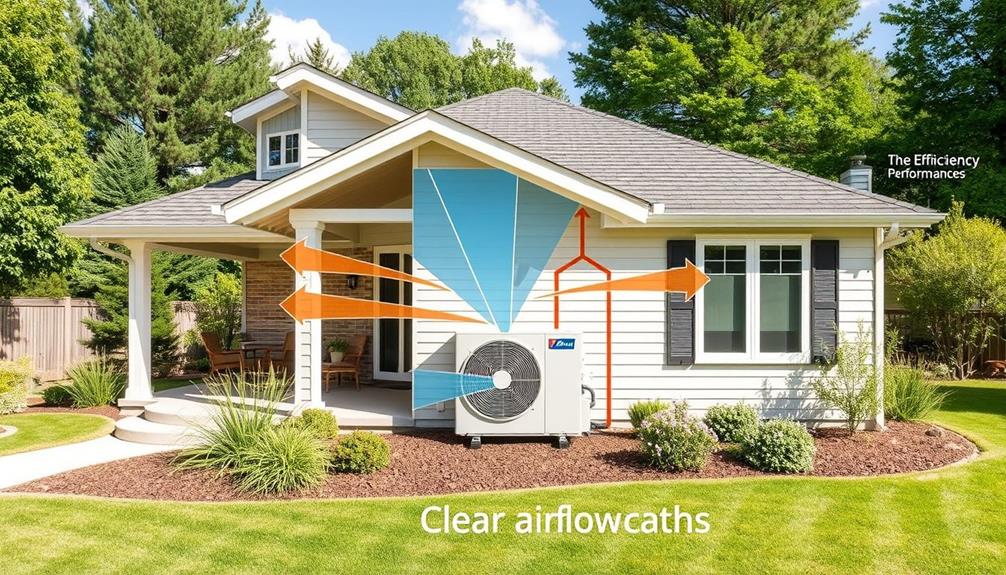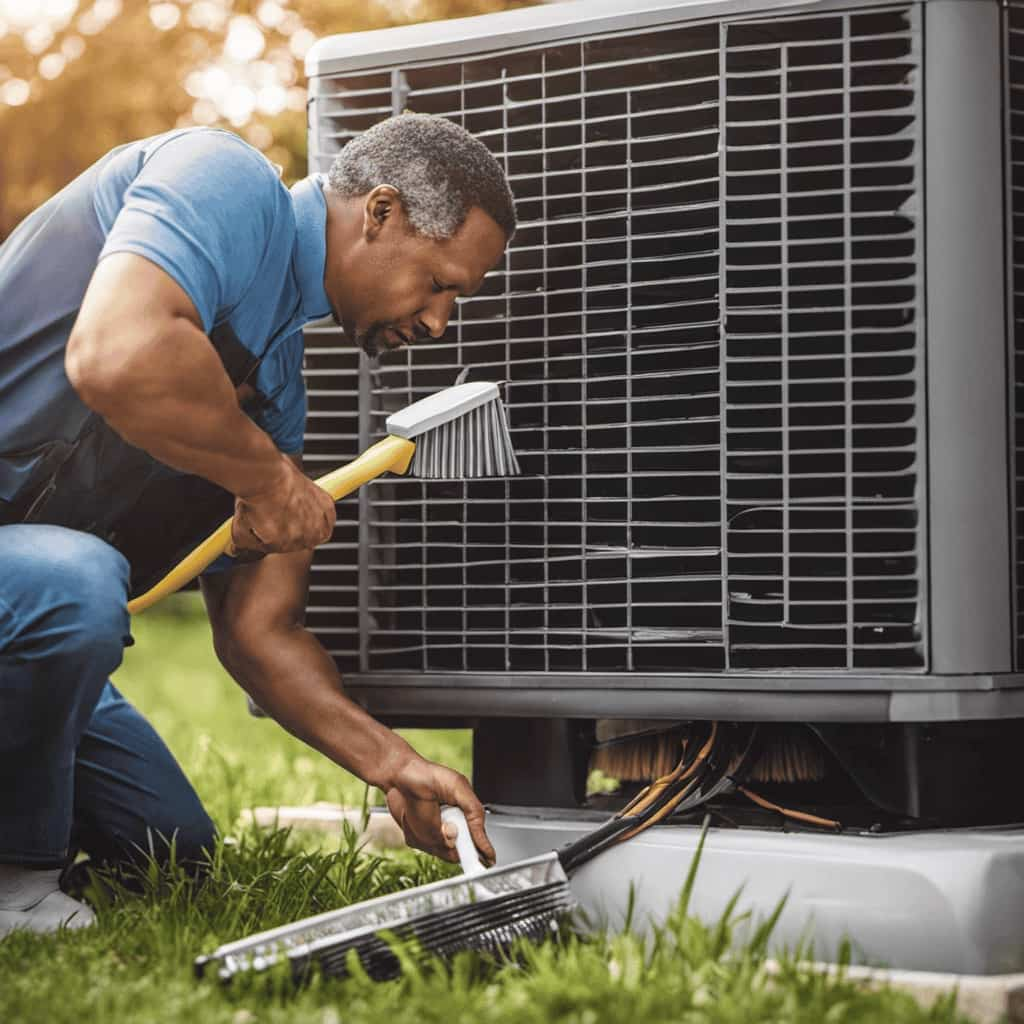
Do you find yourself constantly uncomfortable in your home, being either too warm or too chilly?
Well, we’ve got some good news for you! We have discovered the top future-proof heat pump technologies that will revolutionize the way you control the temperature in your house.
With smart thermostat integration, variable speed compressors, and geothermal heat pumps, you can finally achieve the perfect climate all year round.
Say goodbye to high energy bills and hello to ultimate comfort and efficiency.
It’s time to bring innovation into your home.
Key Takeaways
- Smart Thermostat Integration revolutionizes home heating and cooling control with advanced learning algorithms and remote control capabilities.
- Variable Speed Compressors adapt to changing heating and cooling needs efficiently, consume less energy, and provide precise temperature control.
- Geothermal Heat Pumps utilize the earth’s natural heat for sustainable heating and cooling, offering high efficiency and reducing carbon footprint.
- Dual Fuel Systems combine a heat pump with a secondary heating source for higher efficiency, reducing environmental impact and providing reliable heating even in extreme weather conditions.
Smart Thermostat Integration
We can enhance our heat pump system by integrating it with a smart thermostat. Smart thermostats are revolutionizing the way we control and optimize our home’s heating and cooling. With advanced learning algorithms, these devices can analyze our preferences and adjust the temperature settings accordingly, ensuring maximum comfort while minimizing energy consumption.
Additionally, smart thermostats offer remote control capabilities, allowing us to monitor and control our heat pump system from anywhere through a smartphone app or web portal. This means we can make adjustments to our home’s temperature even when we’re not there, ensuring a comfortable environment upon our return.
By integrating our heat pump system with a smart thermostat, we gain greater control, convenience, and energy efficiency.

Now, let’s explore another exciting technology: variable speed compressors.
Variable Speed Compressors
With variable speed compressors, our heat pump systems can adapt to changing heating and cooling needs more efficiently than ever before. Variable speed technology allows the compressor to operate at different speeds, adjusting its output to match the demands of the home. This technology not only enhances comfort but also significantly improves energy efficiency. By running at lower speeds during milder weather, variable speed compressors consume less energy compared to traditional single-speed compressors that run at full capacity regardless of the actual need. This results in reduced energy consumption and lower utility bills. Additionally, variable speed compressors provide more precise temperature control and operate quietly, making them ideal for residential use. With their energy-efficient compressors, heat pump systems equipped with variable speed technology offer homeowners a cost-effective and sustainable solution for their heating and cooling needs.
| Benefits of Variable Speed Compressors | ||
|---|---|---|
| Enhanced comfort | Improved energy efficiency | Precise temperature control |
| Reduced energy consumption | Lower utility bills | Quiet operation |
| Cost-effective and sustainable solution |
Geothermal Heat Pumps
Geothermal heat pumps, while utilizing the earth’s natural heat, offer a sustainable and efficient solution for heating and cooling homes. These advanced systems work by extracting heat from the ground during winter and transferring it indoors, and during summer, they remove heat from the house and transfer it to the ground.
Geothermal heat pump installation involves burying a series of pipes, called loops, in the ground or submersing them in a body of water. The loops are filled with a fluid that absorbs the heat from the earth and carries it to the heat pump.

One of the key benefits of geothermal heat pumps is their high efficiency, as they can provide up to four units of heat for every unit of electricity used. Additionally, they’ve a longer lifespan compared to traditional heating and cooling systems, reducing the need for frequent replacements.
Furthermore, geothermal heat pumps are environmentally friendly, producing no on-site emissions and reducing carbon footprint. With their ability to lower energy consumption and decrease utility bills, geothermal heat pumps are an innovative and future-proof solution for homeowners.
Dual Fuel Systems
When considering future-proof heat pump technologies for homes, dual fuel systems offer a compelling option.
One of the key points to explore is the efficiency of dual fuel systems compared to other heating options.
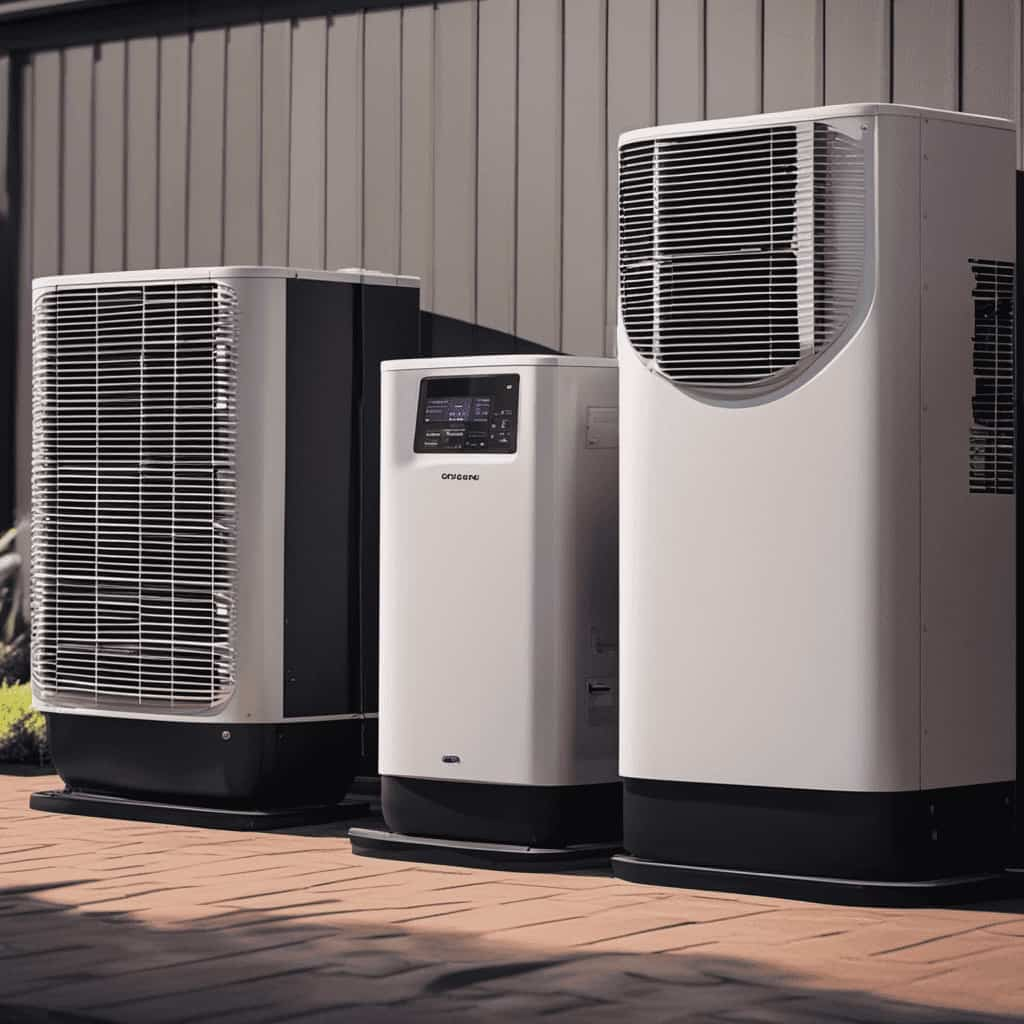
Additionally, a cost comparison can provide insight into potential savings that homeowners can expect when utilizing a dual fuel system.
Efficiency of Dual Fuel
We can achieve higher efficiency in our homes by utilizing dual fuel systems. These systems combine the use of a heat pump with a secondary heating source, such as a gas furnace or a biomass boiler.
Here are some key points to consider about the efficiency of dual fuel systems:
-
Cost benefits: Dual fuel systems offer cost savings by automatically switching to the most economical fuel source based on current energy prices. This allows homeowners to take advantage of lower-cost fuel options and reduce their energy bills.

-
Environmental impact: Dual fuel systems help reduce the environmental impact of heating by utilizing cleaner and more sustainable energy sources. By using a heat pump as the primary heating source, which operates on electricity, the reliance on fossil fuels is minimized, resulting in lower carbon emissions.
-
Energy efficiency: Dual fuel systems are designed to optimize energy efficiency by utilizing the heat pump for most of the heating needs. The secondary heating source is only activated when necessary, ensuring that energy is used efficiently and effectively.
-
Comfort and reliability: Dual fuel systems provide homeowners with reliable heating even during extreme weather conditions. The secondary heating source ensures that the home remains warm and comfortable, even if the heat pump is unable to keep up with the demand.
Cost Comparison – Savings?
Our cost comparison reveals that dual fuel systems can provide significant savings on energy bills while offering the benefits of both a heat pump and a secondary heating source.

When comparing the cost of operating a dual fuel system to a traditional heating system, such as a furnace, the savings can be substantial. Dual fuel systems utilize a heat pump as the primary heating source, which is highly efficient and can significantly reduce energy consumption. However, during extremely cold weather conditions, the secondary heating source, typically a gas or oil furnace, kicks in to provide additional heat.
This combination allows homeowners to take advantage of the energy efficiency of a heat pump while having the peace of mind of a secondary heating source for those extremely cold days.
The payback period for installing a dual fuel system can vary depending on factors such as climate, energy prices, and system efficiency. However, in many cases, the energy savings over time can offset the initial investment, making it a financially sound decision for homeowners.
Enhanced Efficiency Coils
Enhanced efficiency coils are a key component of future-proof heat pump technologies for homes. These coils are designed with advanced technology and innovative designs to maximize energy savings and improve overall system performance.

Advanced Coil Designs
The benefits of advanced coil designs in heat pump systems are evident in their enhanced efficiency and improved performance. These advanced coil designs incorporate cutting-edge technology and innovative features that optimize heat transfer and maximize energy savings.
Here are some key features of advanced coil designs:
-
Advanced refrigerants: These coils are designed to work with advanced refrigerants that have higher heat transfer capabilities, allowing for more efficient operation and better performance.
-
Heat transfer optimization: Advanced coil designs focus on optimizing heat transfer by using advanced materials, such as aluminum or copper, that have excellent thermal conductivity and corrosion resistance.
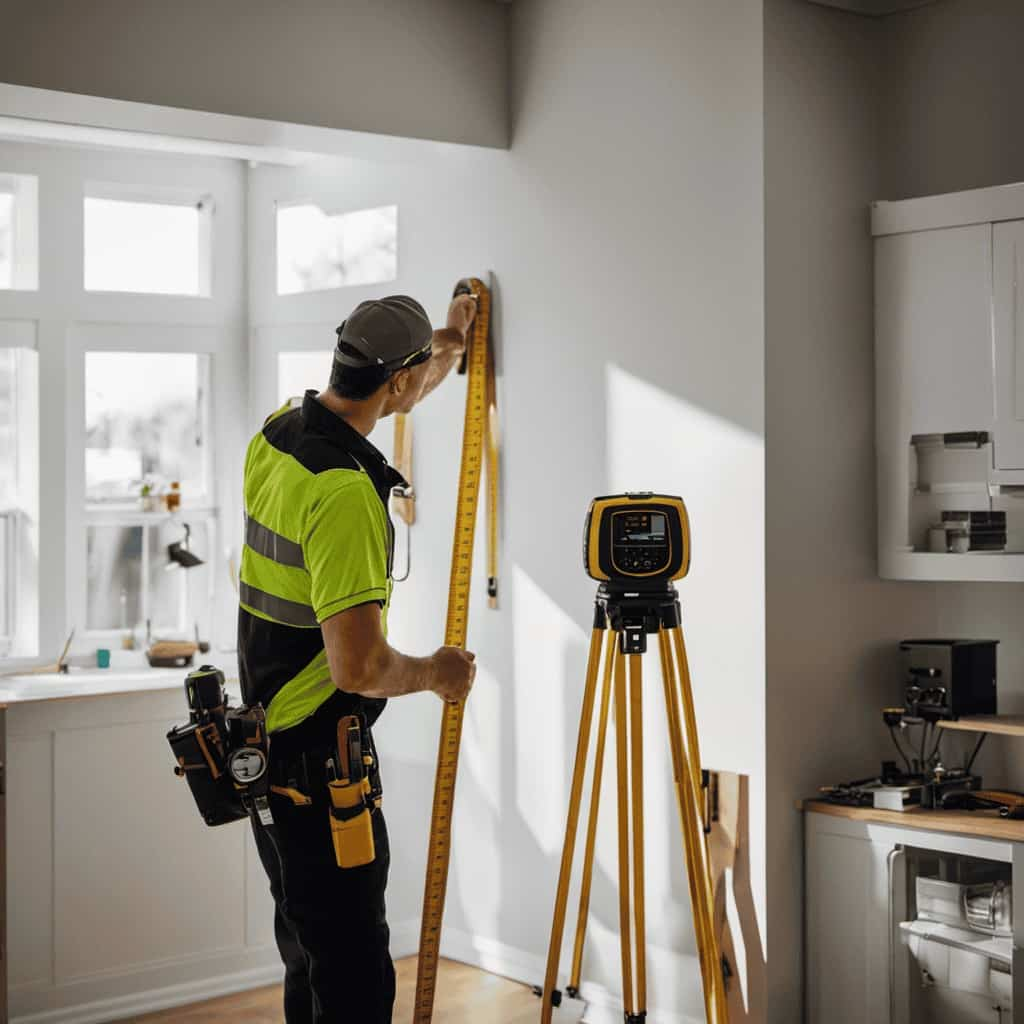
-
Enhanced surface area: These coils are designed with increased surface area to facilitate better heat transfer, resulting in improved efficiency and performance.
-
Compact size: Advanced coil designs are often more compact, allowing for easier installation in tight spaces while still maintaining high efficiency.
With these advanced coil designs, homeowners can expect their heat pump systems to deliver superior performance and energy efficiency.
Now, let’s explore the next section on energy-saving coil technology.

Energy-Saving Coil Technology
By incorporating energy-saving coil technology, we can achieve enhanced efficiency in our heat pump systems. Energy-efficient materials and heat transfer optimization are key factors in improving the overall performance of heat pumps.
Energy-efficient coils are designed to maximize heat transfer while minimizing energy loss. These coils are made using advanced materials that have excellent thermal conductivity and corrosion resistance. By using these energy-efficient materials, heat pumps can operate more efficiently, resulting in lower energy consumption and reduced operating costs.
Heat transfer optimization techniques, such as improving the coil design and optimizing the refrigerant flow, further enhance the efficiency of the heat pump system. These advancements in energy-saving coil technology not only increase the performance of heat pumps but also contribute to reducing carbon emissions and promoting sustainable energy solutions for our homes.
Integrated Energy Monitoring Systems
Integrating energy monitoring systems allows us to track and optimize our home’s energy usage. With energy consumption analysis and real-time data tracking, these systems provide valuable insights that help us make informed decisions about our energy usage. Here are some key benefits of integrated energy monitoring systems:

-
Real-time data tracking: These systems allow us to monitor our energy usage in real-time, providing up-to-date information on how much energy we’re consuming.
-
Energy consumption analysis: By analyzing our energy consumption patterns, these systems can identify areas where we can make energy-saving improvements.
-
Optimization opportunities: With the data provided by these systems, we can identify opportunities for optimizing our energy usage, such as adjusting temperature settings or scheduling energy-intensive tasks during off-peak hours.
-
Cost savings: By optimizing our energy usage, we can reduce our energy bills and save money in the long run.

Integrated energy monitoring systems empower us to take control of our energy usage and make smarter, more efficient choices for our homes.
Frequently Asked Questions
How Do Smart Thermostats Integrate With Heat Pump Systems and What Benefits Do They Offer?
Smart thermostats seamlessly integrate with heat pump systems, offering numerous benefits. They optimize energy usage, learn preferences, and can be controlled remotely. With advanced features like geofencing and energy reports, they provide a more efficient and convenient way to manage home heating and cooling.
What Are the Advantages of Variable Speed Compressors in Heat Pump Technology?
Variable speed compressors offer several advantages in heat pump technology. They provide greater energy efficiency, improved comfort, and quieter operation. Additionally, they allow for precise temperature control and reduce wear and tear on the system. The refrigerant plays a crucial role in transferring heat effectively.
How Do Geothermal Heat Pumps Work and What Makes Them a Future-Proof Option for Homes?
Geothermal heat pumps are an innovative and future-proof option for homes. They harness the Earth’s natural heat, providing efficient heating and cooling. Their versatility and potential for widespread application make them an exciting prospect for the future.
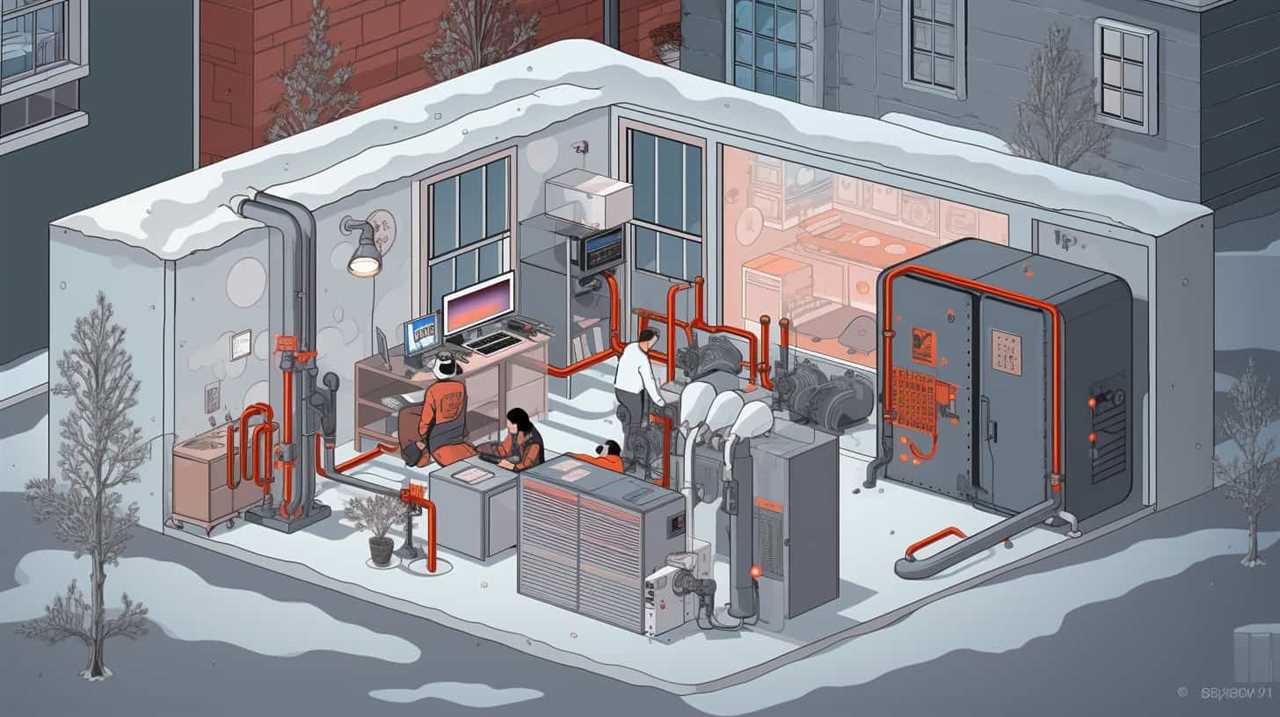
What Are Dual Fuel Systems and How Can They Enhance the Efficiency of Heat Pump Technology?
Dual fuel systems are a technology that can enhance the efficiency of heat pump technology. By combining a heat pump with a furnace, they allow for optimal energy usage, reducing costs and increasing comfort.
How Do Enhanced Efficiency Coils Contribute to the Overall Performance and Energy Efficiency of Heat Pump Systems?
Enhanced efficiency coils play a crucial role in improving the overall performance and energy efficiency of heat pump systems. By enhancing heat transfer and minimizing energy loss, these coils ensure optimal operation and cost savings.
Conclusion
In conclusion, incorporating the top future-proof heat pump technologies discussed in this article can greatly enhance the efficiency and performance of home heating and cooling systems.
One interesting statistic to note is that geothermal heat pumps can reduce energy consumption by up to 70% compared to traditional heating systems, providing significant long-term cost savings for homeowners.
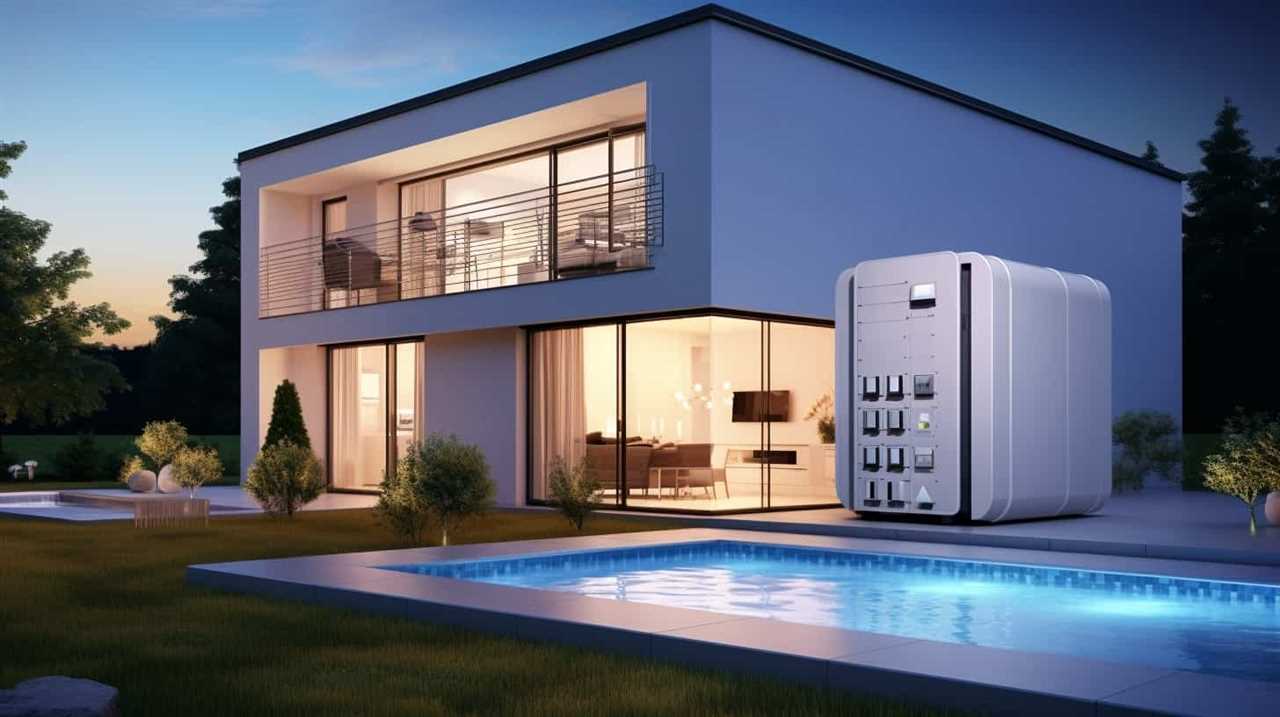
By staying up-to-date with these advancements, homeowners can ensure their homes are equipped with the latest and most efficient heating and cooling technologies.





